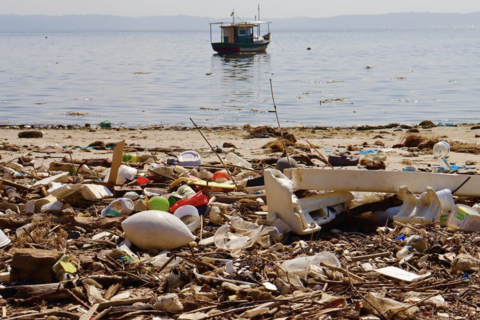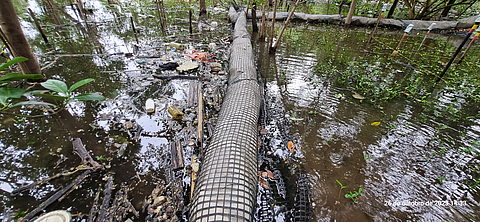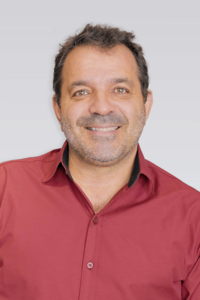

"Orla Sem Lixo" means "Garbage-free shore". A slogan, a goal, a clean performance. Together with the University of Rio de Janeiro, affected municipalities and HUESKER Brazil, innovative solutions have been developed to ensure that the floating waste ends up in the net, or rather in the geogrid.
Guanabara Bay is one of the most important coastal regions right on the Sugarloaf Mountain. A densely populated area where the population of Rio de Janeiro, which tends to have lower incomes, live. Among them are many residents who depend on fishing for their livelihood. This is an increasingly difficult undertaking, as mountains of garbage make a successful catch almost impossible.

80 tons of garbage a day — a big challenge
Transported by the rivers from the hinterland, a veritable flood of garbage pours into Guanabara Bay every day. Mostly plastics, which are in various stages of degradation and are responsible for a whole range of socio-ecological damage:
It is high time to effectively counter this enormous environmental impact and to launch the "Orla Sem Lixo" project.
The right "fishing technique" for floating garbage
In its search for an effective solution to the waste problem, the State University's Research Center turned to HUESKER Brazil shortly after the creation of its project. At the forefront of the cooperation was the development of a system that attaches to buoys, ensures both sampling and large-scale "fishing" of floating waste. This was a major challenge, as various factors had to be taken into account during the installation of the floating systems. For example, free passage points for the project ships to enable a smooth removal of floating waste. Changing winds, waves, tides and currents have also been taken into account in the development, inspiring the systems from nature and supporting the play of forces.

Our geogrids as a floating barrier
As a sustainable company, it was also a personal concern for us to ensure a waste-free shore in Guanabara Bay. Without further ado, we donated the HUESKER geogrids for the construction of our systems. But our support didn't stop there. With passion and know-how, our engineering and research team worked on the adaptation and optimisation of the various devices used in the course of the project. Here we demonstrated greatness: several floating barriers made of HUESKER geogrids, each more than 200 meters long, were installed on the waterfront.
Together we reach the "sea"
An action of this magnitude can only work if everyone pulls together. For this reason, the local communities were also involved in the design of the project. Municipalities, public authorities and private institutions were all mobilised and promoted the project as committed partners in order to breathe new life into the damaged shore and sea region. Every tonne of rubbish counts: the region is already seeing visible and measurable success. Of course, the project for a waste-free riverbank will continue — for a sustainable improvement of the environment and living conditions in one of the most beautiful regions of the world.
Yours, Eduardo
